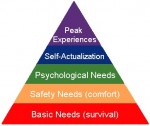Is Hogwarts a Mental Institution?
I am a Harry Potter fanatic and finally had the chance to see the movie this weekend. It killed me to not go to the midnight showing, but being the procrastinator I am, I hadn’t finished my research paper. Anyway, as I was watching it, I began to think of how many characters in the movie are said to be “mad” which prompted me to do some browsing on connections between Harry Potter and mental illness. In doing so, I found a website that states that Harry Potter is not just a magical fairytale, but rather an extended metaphor about mental illness and the institutionalization of children. While I don’t agree with the blogger’s theory, he presented many interesting ways that Freud’s ideas could be applied to Harry’s life.
The central idea is that Hogwarts is a mental institution and that “every major event in the books is a fantasy/delusional version of the experiences that a child would encounter in the course of being institutionalized and forcibly treated for mental illness.” The real world is the world with the Dursely’s and the wizarding world is simply part of Harry’s imagination. His violent encounters with Dudley are what got Harry sent to the mental instition/Hogwarts rather than his magical talents.
To me, his strongest and most interesting point was about Freud’s family romance. Family romance is a fantasy in which a child imagines that their birth parents are not actual, but adoptive parents. Typically, the fantasy parents are noble, or a higher social class than the real parents. Harry fits the mold exactly. He believes that the Dursely’s are not his real parents, but adopted parents and that his real parents are well-known wizards, famous for their great bravery and love in protecting him. Interesting, isn’t it?
I’ll post the link so that ya’ll can read the original blog for yourselves. He presents loose, but interesting ideas about the series. What do ya’ll make of his ideas?
http://freedomainradio.com/BOARD/forums/t/27506.aspx?PageIndex=1

 While reading Zimbardo’s book I thought to the
While reading Zimbardo’s book I thought to the 




